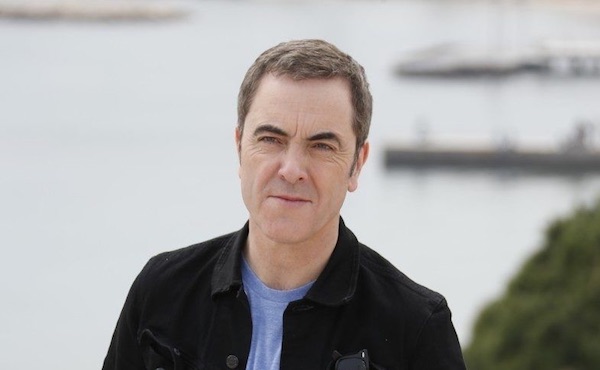
The idea of a new ‘Irish Union’ has gained traction with unionists following comments by actor James Nesbitt.
Plans have been advanced by the well-known actor for a new initiative to discuss the future of the north of the island.
After growing up in a strongly unionist area of Antrim, Mr Nesbitt said how he began to recognise his Irishness after moving to London at the age of 19 to study acting.
A holder of both Irish and British passports, Mr Nesbitt said he now describes himself as “an Irishman, from the north of Ireland who in no way refutes nor shies away from my Protestant culture”.
His new project ‘Connected Citizens’ aims to start an inclusive, non-sectarian conversation about the future of the Six Counties.
It has attracted the support of prominent civic (non-party) unionists, including Methodist minister Harold Good and University Professor Jim Dornan. The TV star said he envisaged that research would begin soon with an aim of launching a report later this year.
Mr Nesbitt called for civic society rather than politicians to help decide the north’s future direction, and said a border poll “is going to happen at some point”. He said there is a need to move away from terms like ‘united Ireland’, instead saying “a new union of Ireland” could appeal to Protestants.
“People from the north, of my tradition, would feel that they have their identity, that it is in no way threatened, that they have an equal voice, that they are part of a society that is progressive, inclusive, diverse,” he said.
“That they have prosperity, that they’re not marginalised, and that they can be proud to be from the north of Ireland in a new union of Ireland.”
Asked if he believed there was a place for him in a ‘new union of Ireland’, Mr Nesbitt said: “I suppose I’m still not entirely sure because we haven’t been given the facts about what these new structures would look like.
“I’m certainly very keen on embracing anything in which the relationship between the people in the north is improved, and between north and south and between the two islands, and it strikes me that I think a lot more people are coming round to the idea of just even considering themselves Irish.”
The actor called for an alternative to the Stormont political party system. “It just feels that there’s been a silent majority here for far too long that actually needs a voice.”
The new project comes amid continuing discussion of the impact of Brexit on the potential for a a Six County referendum on reunification.
This week, the Chair of Westminster’s ‘Northern Ireland Affairs’ committee, Simon Hoare MP, said Brexit could result in a united Ireland, as well as the breakup of the UK.
Former Vice-Chair of the Policing Board, Denis Bradley, has called for a new look at the Éire Nua template for a new Ireland. The Sinn Féin proposal dating from the 1970s calls for a federal structure of government.
The document allows for an assembly for each Province of Ireland, including an Ulster assembly which would be “an Ulster Parliament for the Ulster people”, where unionists would have considerable control over their own affairs.
The SDLP leader Colum Eastwood has said he is open to the idea of a ‘union of Ireland’.
“Language is important, and it’s very important if we’re talking about people who are afraid of any change,” Mr Eastwood said. “We have to make them comfortable and, more importantly, feel part of the conversation.”
Ulster Unionist Assembly member for Upper Bann, Doug Beattie, said he agreed with Nesbitt that politicians had failed the people of the North. He said that conversations about a potential united Ireland needed to be had.
“I think that conversation is extremely important. You can be a proud unionist, a proud Protestant, a proud loyalist and you can still talk about what life would be like if it was in a united Ireland,” he said.
Mr Nesbitt’s arguments were immediately rejected by the Democratic Unionist Party’s Jim Wells, who said the actor was typical of those “from our community, who have made a small fortune on the mainland and who seem to have lost all sense of where they come from and who they are”.
“The only people who are having a conversation about a united Ireland are nationalists,” he said.
![[Irish Republican News]](https://republican-news.org/graphics/title_gifs/rn.gif)
![[Irish Republican News]](https://republican-news.org/graphics/title_gifs/harp.gif)

